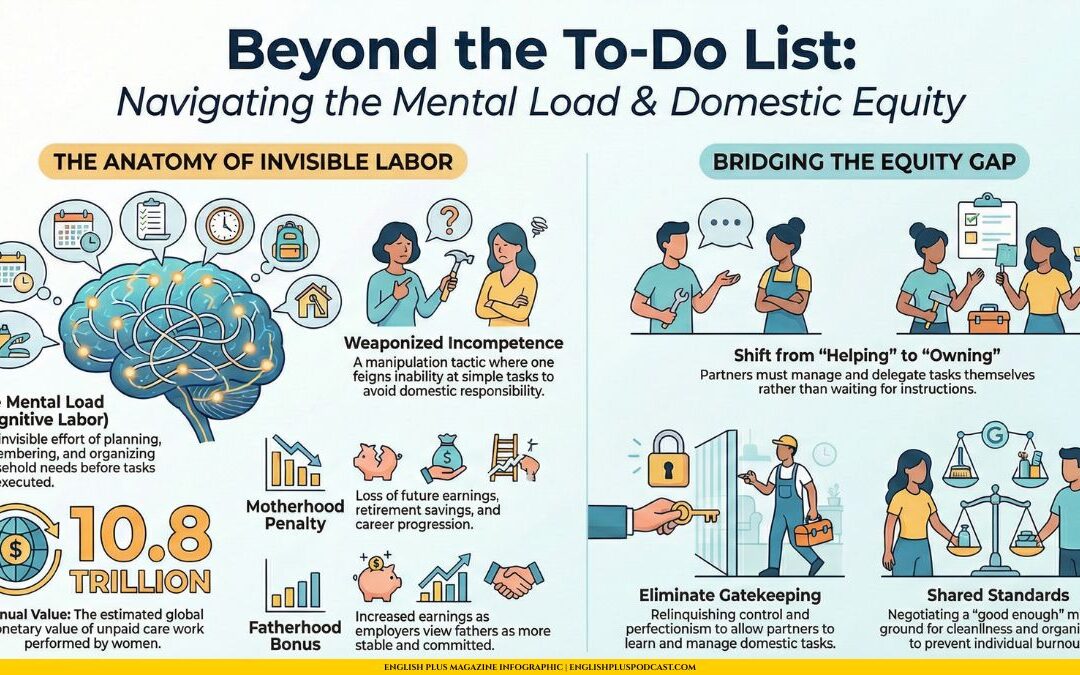Have you ever noticed how the same dedicated work can feel triumphant or trivial based on one thing: its financial outcome? It’s a quiet paradox I’ve been wrestling with… It’s about the strange alchemy of value, and how the very same action, the same passion, the same dedicated work, can feel completely different depending on the story we attach to it—specifically, the financial story. It’s a subtle distortion field, one that can bend our perception of our own worth and the worth of what we put into the world.
Let me get personal for a moment, because this is where the thought began. Each week, I pour a significant part of my life into creating things I believe in. I’m talking about the podcast episodes you might listen to on your commute, the articles you may scroll through during a coffee break, the quizzes designed to spark a little curiosity, and a whole host of other materials aimed at lifelong learning. There is a quiet joy in this process, a sense of rightness in the act of shaping an idea and sending it out into the world. There’s a deep-seated belief in me that this work is helpful, that it’s important, that it contributes something positive. I know many of you feel the same, and your feedback—an email, a comment, a shared link—often feels like a confirmation that this effort matters.
And yet, there’s a shadow that follows this conviction. When I look at the financial results, they don’t quite sing the same triumphant song. The numbers are modest. And in the face of that reality, a chorus of doubts begins to rise, not just from well-meaning friends or family, but from within my own mind. These doubts are insidious whispers: “Is this sustainable? Are you really making a difference if it’s not ‘successful’? What could you be doing more of? What should you be doing differently? Is it time to consider something else entirely?” Suddenly, the conversation, both internal and external, shifts from the intrinsic value of the work to a frantic search for a Plan B, C, or D. The joy of the work—the creation, the connection—becomes tainted by the anxiety of justification, feeling less significant under the weight of a modest balance sheet.
Now, let’s flip the coin. Let’s run a thought experiment. Imagine the exact same scenario—the same output, the same late nights, the same creative energy, perhaps even less in terms of sheer productivity or influence—but this time, it’s a resounding financial success. The bank account is flourishing. What happens then? The narrative transforms entirely. The very same people who might have been quietly suggesting a change in strategy are now the first to praise the “genius” of the contribution. The work is lauded, celebrated, and held up as a model of innovation. The quiet passion is reframed as brilliant market insight. And if I’m being brutally honest with myself, I too would likely stand a little taller, my satisfaction amplified, my pride solidified by the external validation of the market. The work hasn’t changed, but its reflection in the eyes of the world—and in my own—has been completely altered.
This is the heart of the paradox that I can’t shake. How can the same water taste so different in two different glasses? It’s a question that extends far beyond my own work. Think about it. Would a simple glass of water, offered to quench a deep thirst, feel more satisfying if it were served in a heavy, ornate crystal goblet versus a cheap, dented metal cup? The water is identical. Its molecular structure, its ability to hydrate, to sustain, is unchanged. But our perception of its value, our experience of drinking it, is undeniably altered by the vessel that holds it. The crystal glass adds weight, ceremony, a sense of occasion. The metal cup is pure utility, easily dismissed. We start judging the life-giving water by the manufactured value of its container.
This isn’t just about podcasts or articles. It touches every creative and purpose-driven endeavor. I think of my fiction, the stories I craft from the ether, or the music I compose, note by note. These are pieces of my soul, offered up to the world. I am immensely proud of them, regardless of their commercial reception. But the question lingers, a persistent whisper: would I be more proud if they topped the bestseller lists or the music charts? Would the world see them as more profound, more meaningful, if they came with a hefty price tag and a legion of fans? Consider the painter whose canvases gather dust—think of Van Gogh, who sold only one painting in his lifetime. When his work sells for a fortune today, did the art itself change? Or did our perception of its importance? The genius was always there, waiting for the world to see it.
The danger here is a subtle but powerful shift in focus. When we tether the worth of an action exclusively to its financial outcome, we begin to lose sight of its true influence. We start navigating not by our internal compass, the one that points toward purpose and meaning, but by the volatile and often superficial winds of the market. The destination we originally set for ourselves—to create, to connect, to contribute—can become secondary to the immediate need to find calmer, more profitable waters. We begin to ask not “What is true?” but “What will sell?”
Imagine setting sail on a grand voyage with a clear destination marked on your map. You know where you want to go: a distant shore representing your core mission. But along the way, you encounter storms and rough seas—these are the realities of any ambitious project. It’s only natural to adjust your course, to pivot to avoid the worst of the weather. But what happens if you keep changing your route, constantly seeking the path of least resistance, the smoothest passage? You might avoid the turbulence, yes, but will you ever reach the shore you first dreamed of? There’s a profound difference between a strategic pivot—a necessary adjustment to stay on course—and abandoning the journey altogether for a more convenient port of call. It’s the difference between determination and stubbornness.
Stubbornness is clinging to a path long after it has proven to be a dead end, refusing to adapt out of pride or fear of failure. It’s insisting on sailing directly into the hurricane because you drew a straight line on a map. Determination, on the other hand, is holding fast to your ultimate destination while being flexible about the route you take to get there. It’s tacking against the wind, repairing the sails after a storm, and keeping your eyes fixed on the horizon, even when the waves are high. It’s about knowing why you set sail in the first place. Determination is fueled by a deep belief in the destination; stubbornness is fueled by a fear of being wrong about the map. One is about loyalty to the ‘why,’ while the other is a rigid attachment to the ‘how.’
When we allow financial metrics to become the sole arbiter of our success, we risk becoming stubborn in all the wrong ways—stubbornly chasing profits down avenues that lead us further from our purpose. True determination is having the courage to believe in the intrinsic value of your work, even when the world is slow to assign it a monetary one. It’s about understanding that the most profound effects of our actions are often the ones that can’t be quantified on a spreadsheet. They are the slow, quiet ripples that spread out in ways we may never fully see.
The richness of a life’s work is not measured in dollars alone, but in the lives it touches, the ideas it sparks, the comfort it provides, and the beauty it adds to the world. It’s in the email from a stranger who tells you your work helped them through a difficult time. It’s in the student who discovers a new passion because of something you shared. The money, I have to believe, is a byproduct. It may come, and it may not. But if we make its arrival the entire point of the journey, we will miss the incredible scenery along the way. We will forget the joy of navigating by the stars, the thrill of discovering uncharted islands of creativity, and the deep satisfaction of knowing we stayed true to our course.
So, let us choose to see the water, not the glass. Let us hold our purpose—our destination—with a determined grip, navigating the journey with grace. The true value is in the voyage itself. Let’s measure our success not by the weight of gold in our pockets, but by the weight of that purpose in our hearts, knowing that this is a currency that never loses its value.
This brings to mind the raw vulnerability of the creator, so perfectly captured by W.B. Yeats in his poem, “Aedh Wishes for the Cloths of Heaven.” He writes of wanting to offer the grandest, most beautiful gifts, but having only his inner world to give. It’s a sentiment every person who creates something from nothing understands deeply:
Had I the heavens’ embroidered cloths,
Enwrought with golden and silver light,
The blue and the dim and the dark cloths
Of night and light and the half-light,
I would spread the cloths under your feet:
But I, being poor, have only my dreams;
I have spread my dreams under your feet;
Tread softly because you tread on my dreams.
That is what we do. We spread our dreams at the world’s feet, and the value isn’t in the transaction, but in the sacred, hopeful act of the offering itself.
And yet, after all this, I must ask myself: am I only able to frame this paradox this way because I stand on this side of the financial divide? If fortune were to change, and the crystal goblets were suddenly mine, would this entire perspective dissolve into a self-serving justification for wealth? There’s a strange, unsettling thought in that: perhaps my purpose requires me to stay on this side, to keep this perspective clear precisely because it hasn’t been blurred by success. But then again, isn’t reality simply what we perceive it to be? Perhaps the paradox isn’t in the world, but in the ever-shifting lens through which we view it. What do you think? Let me know!
Danny Ballan
Editor-in-Chief










0 Comments